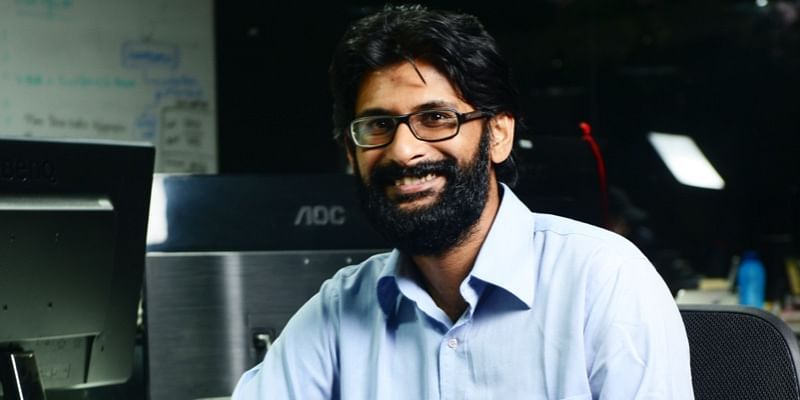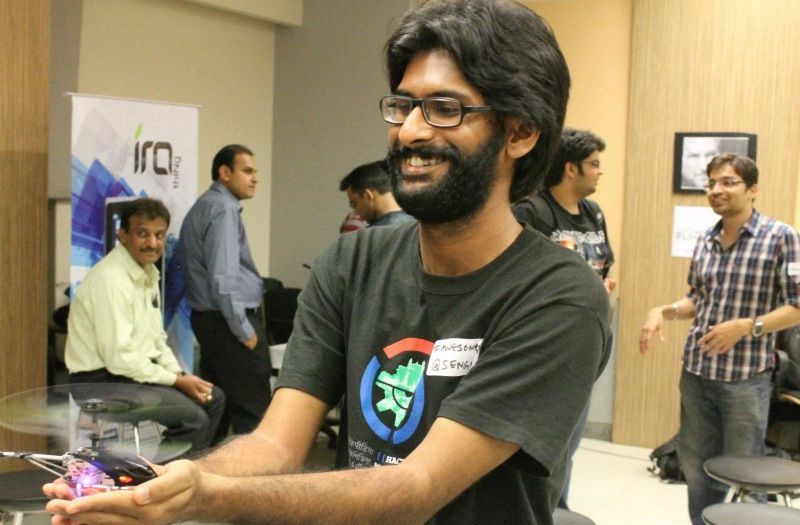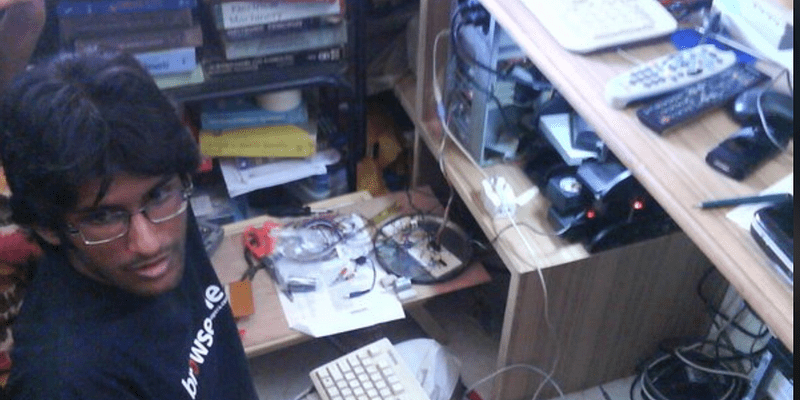Aditya Sengupta may have followed a “cookie-cutter model of science and engineering” at college, but he chose to follow a "custom" approach in the real world.
As CTO of payment gateway Instamojo, Aditya has helped simplify financial transactions for individuals and small businesses. Instamojo, which works across sectors like ecommerce, lending, and payments, was founded in 2012 by Aditya, Sampad Swain, and Akash Gehani.

Aditya Sengupta, CTO, Instamojo
The startup began its journey as a digital payment solution provider and has progressively grown into an online platform for micro, small, and medium enterprises to start, manage, and grow their businesses online. It is now a one-stop shop for entrepreneurs, catering to their diverse business needs by leveraging technology, data, and design.
Eight years on, Aditya believes the digitisation problem still needs to be solved and remains "as exciting as it used to be".
In the beginning
Aditya hails from Mumbai. Most of his childhood was spent in Aurangabad; his family later moved to UAE for six years.
His interest in mathematics and science seemed natural as his mother was a science teacher and his father was an electrical engineer. Except for harbouring ideas of being a neurosurgeon and later an astronaut, Aditya says he was “always interested in engineering”.
“My father’s side of the family had many engineers. Everyone would talk engineering and my path was clear by middle school. It was a cookie-cutter model…I even went to same college everyone in my family did: VJIT, University of Mumbai,” he recalls.
But that doesn’t mean Aditya wasn’t curious as a child. He says he would always be dismantling things and putting them back together.
“My path was cookie cutter; I wasn’t. I would question my professors, and always have a different way of solving a problem. It was something that came naturally to me,” he recollects. His family’s continued encouragement meant there was never anything lacking when it came to studying or experimenting.
“If I wanted to read a book, it would be available. If I wanted to study something, I would be encouraged to do so. And if I had doubts, I could ask any question, no matter how stupid or inane it seemed. When you grow up in an environment with that level of encouragement for curiosity, you want to try new things,” Aditya says.
This curiosity led him to try programming. He had started coding when he was in Class 3 where he would draw on the computer with Logo programming.
“I used to go to the class and the teacher would have a hard time getting me out of the lab. This continued in college and even when I was doing my fellowship,” Aditya says.

Coding in college
The first programme he made was at VJIT in 2005. It was a command that would play music on one’s computer. He wrote a double entendre detector, and built an automated control mechanism of Pulse Transformer at Siemens High Voltage Lab, replacing the manually operated circuit controller with a remotely operated computer control system. He was also part of the founding team and senate member for the Society for Robotics and Automations.
Coding and programming became a part of his life, and were also actively encouraged at home. During his engineering years, he got a research fellowship at IIT-Bombay. Aditya had gone to the institute to get a few doubts cleared as he wanted to learn more about coding and programming.
“The professor said they had some research positions open and asked if I would be interested. I was,” Aditya says. At IIT, he went on to work on an MHRD-funded project to drive adoption of open source software in education.
During his time at IIT (till 2011), Aditya focused strongly on control and computing.
“India for a long time had a lot of dependence on proprietary software and packages for scientific requirements, especially for any nuclear research or rocket launches. Tools that could be used for other things weren’t easily accessible. So, we decided to build it across open source. You can modify those tools the way you need to use them without having somebody else telling what you can or cannot do.”
Coding for a problem
Aditya “loved” his work and research but in two years realised that he had to do “something more impactful”.
“We were sitting in a lab and running a bunch of experiments and simulation with tools and codes. Teams were focused on a broad set of areas called controls in computing, control system, signal processing, and numerical algebra. I wanted my code to see the light of the day and didn’t envision myself as doing a PhD and studying until my 30s,” he says.
He adds that he didn’t think he was very good at programming, but says it was something he I “really liked doing”.
So in 2011, when Sampad, Akash, and Harshad Sharma approached Aditya with the idea of Instamojo, he decided to join as co-founder. He knew the co-founders from his college days; the four had reconnected on Twitter.
At that time, the founders were working on a hyperlocal app platform, and looking for a strong technical founder.

Aditya during college days
Building for small business owners
The team soon pivoted to focus on fintech and payments.
“It was closely linked to ecommerce. It may seem simple today, but it had its challenges eight years back. If a small merchant, independent artist, or individual wanted to see something online, they had limited choices. If you wanted to sell your music, you could go to an app store and sell, but you would be discovered if you were really famous. You would end up paying between 15 and 30 percent fee. This was a challenge for most small businesses,” Aditya says.
Instamojo made things simple. Aditya says the idea was that businesses and freelancers should not have to focus on building a site. “Musician should be free to focus on lyrics, authors on writing, and small merchants on their core business. They should not need to think about how to set up a website, get files online, or if the site is doing well.”
That is where Instamojo came into the picture. It wanted to ensure that an individual or business would not have to worry about building a website or integrating it with a payment gateway, which is another challenge.
“You would have to walk into a bank to apply for a payment gateway. You would need to submit registration details, bank statements of the last three years, who you had been working with so far, and other key documents. But most small businesses or freelancers often don’t even have a bank account,” Aditya says.
He adds that the process is cumbersome and one has to have been in the business for a while to sell online.
“We wanted to keep entry barriers low and keep a close eye on transactions. The first order of business was to build a dispute system where if a buyer was not happy, they could use the transaction within our system and talk to the merchant. Disputes on 20 percent of a merchant’s transactions would lead to an intervention,” Aditya says.
At present, the startup has two flagship products to its name – MojoCapital, which helps disburse bite-sized short-term credit loans worth $2 million, and MojoXpress, which helps MSMEs deliver products to their customers. The former caters solely to its merchants every month, and the team claims that this number is growing at 25 percent month on month.
What is your moral code?
Aditya may not code every day now, but still focuses on building the product to a larger scale. What does he look at when hiring people? He looks at potential employees from “a moral perspective”.
“You will have to make a lot of decisions…how a specific product flow is going to get built, what happens in a particular journey, and more. How will you make those decisions? Are you going to do it in a manner that has the interest of the customers at heart? Will you be able to put yourself in the customers’ shoes?”
Aditya also looks at a person’s capability to solve difficult problems. “It doesn’t matter what kind of problems; if you have solved difficult problems in the past, you will be able to solve difficult problems in the future.”
Edited by Teja Lele
Want to make your startup journey smooth? YS Education brings a comprehensive Funding Course, where you also get a chance to pitch your business plan to top investors. Click here to know more.
Link : https://yourstory.com/2020/09/techie-tuesday-instamojo-cto-aditya-sengupta-iit
Author :- Sindhu Kashyaap ( )
September 08, 2020 at 05:15AM
YourStory



